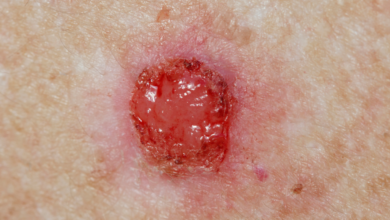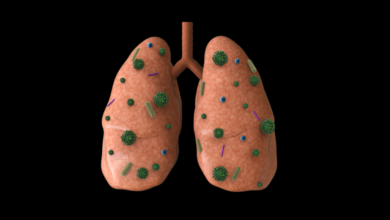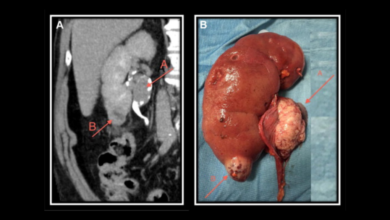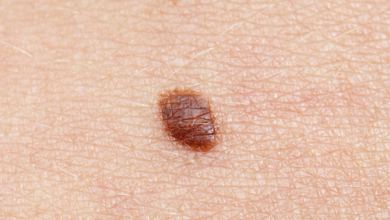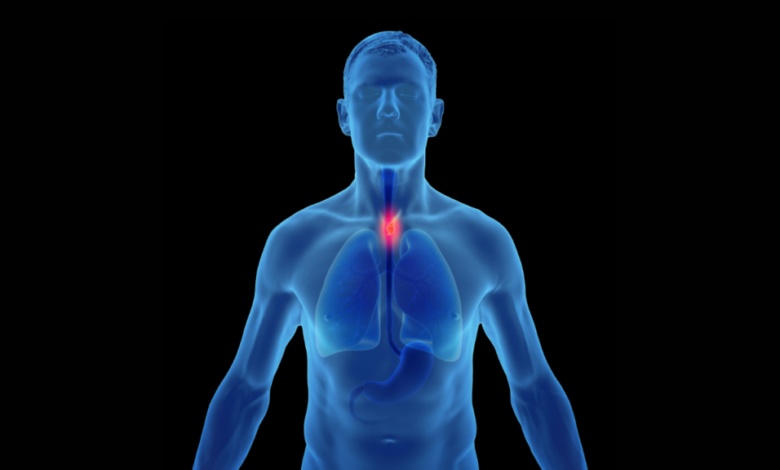
What is Esophageal Cancer?
Esophageal cancer is a type of cancer that develops in the esophagus, the muscular tube that connects the throat to the stomach.
Types of Esophageal Cancer
There are two main types of esophageal cancer:
- Squamous Cell Carcinoma: This type of cancer arises from the squamous cells that line the esophagus.
- Adenocarcinoma: This type of cancer develops in the glandular cells of the esophagus, often in the lower part of the esophagus.
Symptoms of Esophageal Cancer
Early-stage esophageal cancer often doesn’t cause any noticeable symptoms. However, as the cancer progresses, symptoms may include:
• Difficulty swallowing (dysphagia): This is the most common symptom.
• Chest pain or discomfort
• Persistent cough
• Hoarseness
• Weight loss
• Vomiting
• Heartburn or acid reflux
Causes of Esophageal Cancer
Several factors can increase the risk of esophageal cancer, including:
• Smoking: Smoking is a major risk factor.
• Excessive alcohol consumption: Heavy drinking can increase the risk.
• Gastroesophageal reflux disease (GERD): Chronic acid reflux can damage the esophageal lining.
• Barrett’s esophagus: A condition where the lining of the esophagus changes, increasing the risk of cancer.
• Certain dietary factors: A diet low in fruits and vegetables and high in red and processed meat may increase the risk.
Who Can Suffer from Esophageal Cancer?
Anyone can develop esophageal cancer, but it is more common in older adults and those who smoke or drink heavily.
Diagnostic Tests for Esophageal Cancer
To diagnose esophageal cancer, a doctor may use a combination of tests, including:
• Endoscopy: A procedure to examine the esophagus using a flexible tube with a light and camera.
• Biopsy: A small tissue sample is removed from the esophagus and examined under a microscope.
• CT scan: A CT scan can help determine the extent of the cancer.
• PET scan: A PET scan can help detect cancer cells that have spread to other parts of the body.
Stages of Esophageal Cancer
The staging of esophageal cancer helps determine the extent of the disease and guides treatment decisions. The most common staging system is the TNM system, which considers the size of the tumor (T), the spread to nearby lymph nodes (N), and the presence of distant metastases (M).
Treatment of Esophageal Cancer
The treatment for esophageal cancer depends on the stage and type of cancer, as well as the patient’s overall health. Common treatment options include:
• Surgery: To remove the cancerous part of the esophagus.
• Chemotherapy: To kill cancer cells throughout the body.
• Radiation therapy: To kill cancer cells with high-energy rays.
• Chemoradiotherapy: A combination of chemotherapy and radiation therapy.
Diet and Esophageal Cancer Prevention
While a healthy diet can’t guarantee prevention of esophageal cancer, it can reduce the risk of certain risk factors. Here are some dietary recommendations:
• Limit alcohol consumption: Excessive alcohol intake can damage the esophagus.
• Quit smoking: Smoking is a major risk factor for esophageal cancer.
• Maintain a healthy weight: Obesity can increase the risk of GERD, which is linked to esophageal cancer.
• Eat a balanced diet: A diet rich in fruits, vegetables, and whole grains can help.
Diet to Prevent Esophageal Cancer
While there’s no specific diet that can guarantee prevention of esophageal cancer, a healthy diet can significantly reduce the risk. Here are some dietary recommendations:
• Limit alcohol consumption: Excessive alcohol intake is a major risk factor for esophageal cancer.
• Quit smoking: Smoking is another significant risk factor.
• Maintain a healthy weight: Obesity can increase the risk of esophageal cancer.
• Eat a balanced diet: A diet rich in fruits, vegetables, and whole grains can help.
• Limit red and processed meat: Consuming too much red and processed meat can increase the risk of certain cancers.
Overall Survival Rate of Esophageal Cancer
The overall survival rate for esophageal cancer varies depending on the stage of the cancer, the type of treatment received, and the individual’s overall health. Early detection and timely treatment significantly improve the prognosis.
Doctor to Consult
A gastroenterologist or a surgical oncologist is the best doctor to consult for esophageal cancer.
Diseases Associated with Esophageal Cancer
Esophageal cancer is often associated with other health conditions, including:
• Gastroesophageal reflux disease (GERD): Chronic acid reflux can damage the esophageal lining, increasing the risk of cancer.
• Barrett’s esophagus: A condition where the lining of the esophagus changes, increasing the risk of cancer.
How to Prevent Esophageal Cancer
In addition to a healthy diet, the following strategies can help prevent esophageal cancer:
• Quit smoking: Smoking is a major risk factor.
• Limit alcohol consumption: Excessive alcohol intake can increase the risk.
• Maintain a healthy weight: Obesity can increase the risk of GERD.
• Regular check-ups: Regular check-ups can help detect any abnormalities early on.


